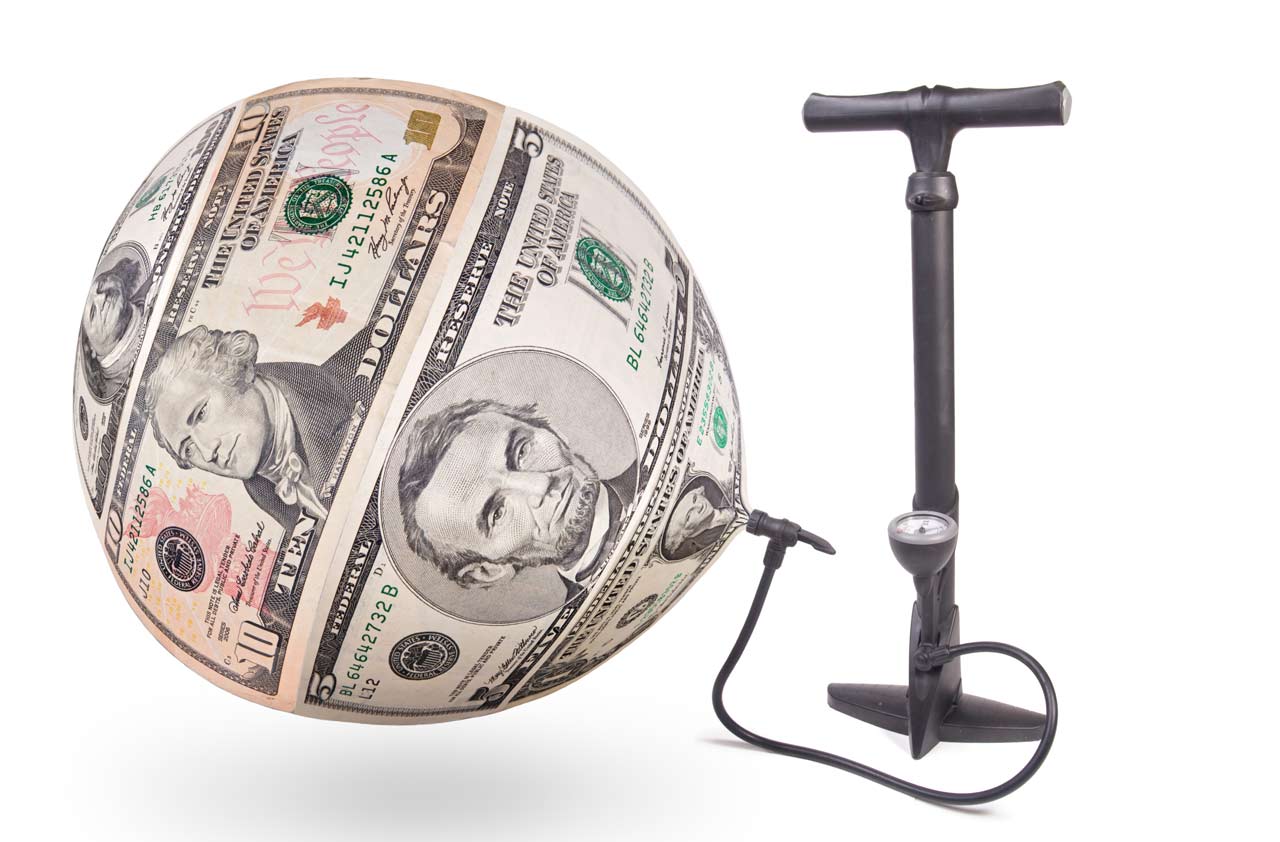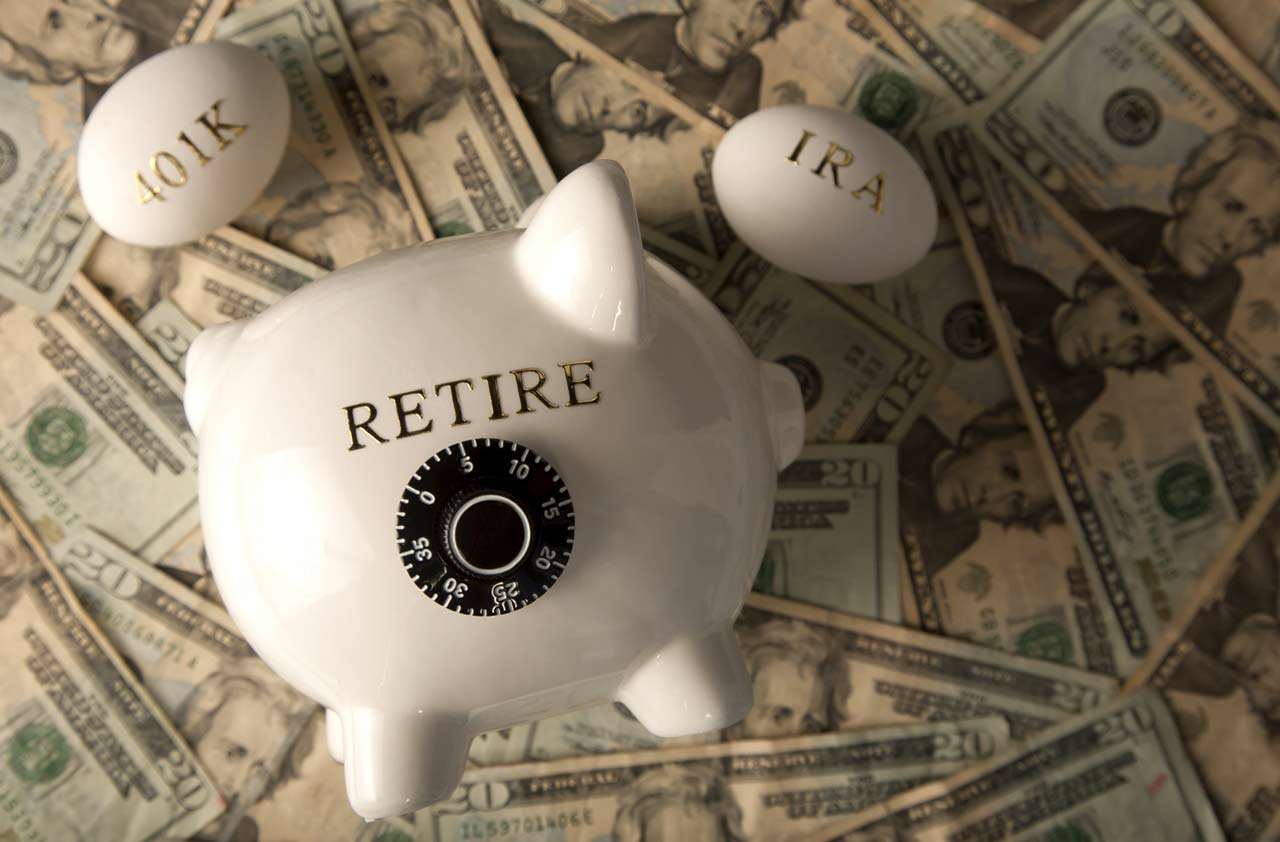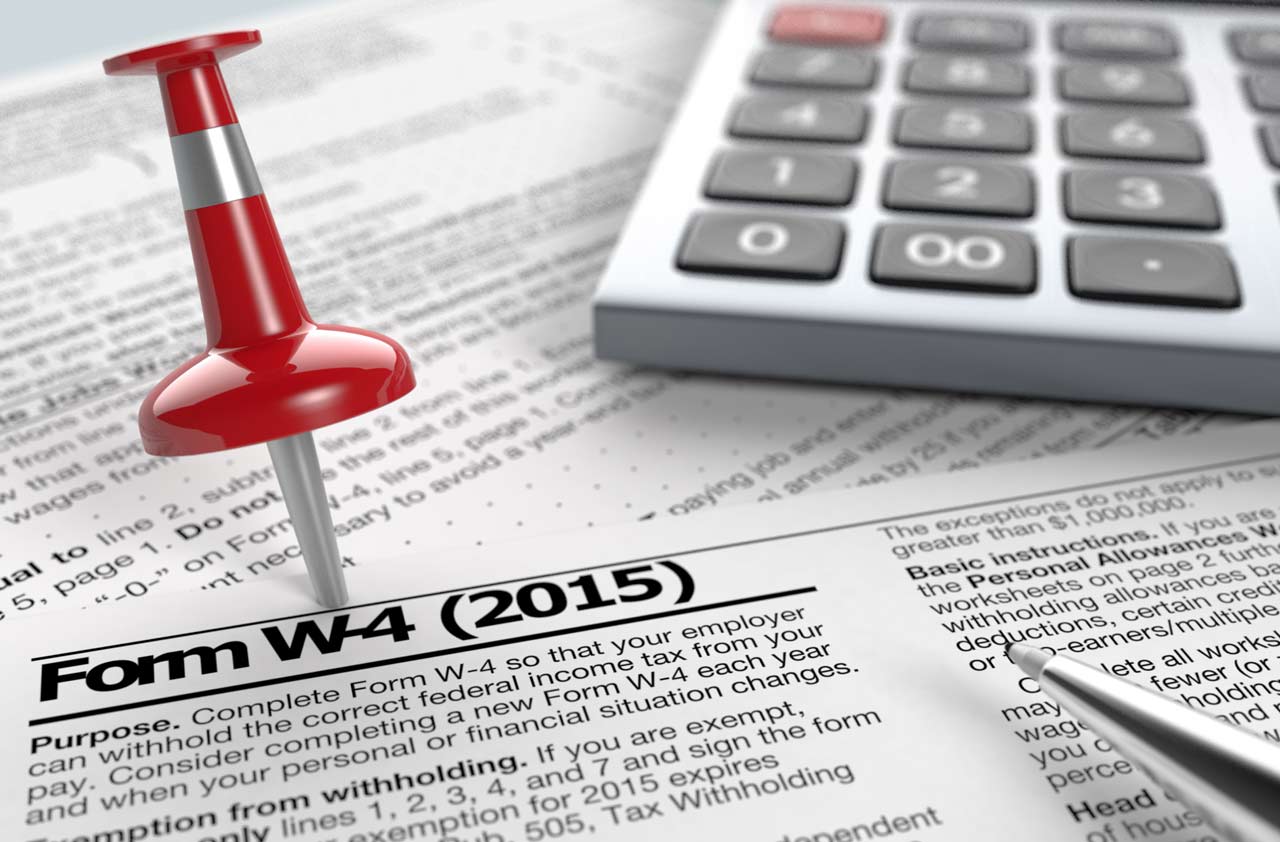7 Valuable Things You Can Learn From Your Tax Return
Whether you did your own taxes or paid a preparer, you’re probably happy to have that chore behind you for the year.


Profit and prosper with the best of Kiplinger's advice on investing, taxes, retirement, personal finance and much more. Delivered daily. Enter your email in the box and click Sign Me Up.
You are now subscribed
Your newsletter sign-up was successful
Want to add more newsletters?

Delivered daily
Kiplinger Today
Profit and prosper with the best of Kiplinger's advice on investing, taxes, retirement, personal finance and much more delivered daily. Smart money moves start here.

Sent five days a week
Kiplinger A Step Ahead
Get practical help to make better financial decisions in your everyday life, from spending to savings on top deals.

Delivered daily
Kiplinger Closing Bell
Get today's biggest financial and investing headlines delivered to your inbox every day the U.S. stock market is open.

Sent twice a week
Kiplinger Adviser Intel
Financial pros across the country share best practices and fresh tactics to preserve and grow your wealth.

Delivered weekly
Kiplinger Tax Tips
Trim your federal and state tax bills with practical tax-planning and tax-cutting strategies.

Sent twice a week
Kiplinger Retirement Tips
Your twice-a-week guide to planning and enjoying a financially secure and richly rewarding retirement

Sent bimonthly.
Kiplinger Adviser Angle
Insights for advisers, wealth managers and other financial professionals.

Sent twice a week
Kiplinger Investing Weekly
Your twice-a-week roundup of promising stocks, funds, companies and industries you should consider, ones you should avoid, and why.

Sent weekly for six weeks
Kiplinger Invest for Retirement
Your step-by-step six-part series on how to invest for retirement, from devising a successful strategy to exactly which investments to choose.
Whether you did your own taxes or paid a preparer, you’re probably happy to have that chore behind you for the year. But before you stash your tax documents in a file drawer, review your return for ideas about how to upgrade your personal finances in 2015. Here are seven money-saving tips your filing can help you take advantage of:

Your Mutual Funds May Be Inflating Your Tax Bill
If you ended up with a bigger tax bill—or smaller refund—than usual this year, check out the capital gains distributions from your mutual funds in any brokerage accounts. Thanks to last year’s strong stock market, some funds paid out big distributions. If those funds are in a taxable account (versus an individual retirement account or 401(k) plan), you paid taxes on them, even if you reinvested the money.
- What to do: Unless you have losses to offset your gains, dumping your tax-inefficient funds could trigger an even bigger bill next year. But you may want to direct future investments into funds that do a better job of keeping distributions in check. Index funds and exchange-traded funds are good choices for your taxable account.

It Could Be Time to Look for a New Bank Account
Your smallest source of income in 2014 was likely your bank. Were you disheartened to learn that the amount of interest you earned on your emergency savings account won’t pay for a gallon of milk? You’ve got lots of company. The average interest rate for a bank savings account is 0.09%. (Financial institutions aren’t even required to report interest payments of $10 or less to the IRS, although you’re still supposed to report it on your tax return.)
- What to do: Consider switching to an online savings account. Some are yielding interest of 1% or more. See our picks for the Best Deals in Online Banking.

Retirement Contributions Can Really Cut Your Tax Bill
One of the advantages of doing your own taxes (or carefully reviewing your professionally prepared return) is that you can see how much contributions to a tax-deferred retirement plan reduce your taxable income. You’ll have to pay taxes on the money when you take withdrawals, but hopefully you’ll be in a lower tax bracket by then.
- What to do: Increase your contributions. In 2015, you can stash up to $18,000 in a 401(k) or similar employer-provided plan, or $24,000 if you’re 50 or older.

A Health-Savings Account Can Help with Medical Deductions
Staring at a pile of health-care receipts that didn’t add up to enough—10% of your adjusted gross income, or 7.5% if you’re older than 65—to claim a deduction? If you have a high-deductible health insurance plan, funding an accompanying HSA will increase the amount of money you can shelter from the tax man. In 2015, you can contribute up to $3,350 for an individual or $6,650 for a family, plus an extra $1,000 if you’re 50 or older. The money grows tax-free, and you can take tax-free withdrawals for qualified medical expenses.
- What to do: You can open an HSA anywhere as long as you have an HSA-eligible health insurance policy. Many banks and brokerage firms offer HSAs; consulting firm Devenir offers an HSA search tool at HSASearch.com. Most employers and insurers have relationships with specific HSA administrators. While you aren’t required to enroll in your employer’s plan, using it may streamline the claims-paying process, and it could be the only way to get an employer contribution.

It Pays to Be Generous
If you itemize, take a few moments to review how your charitable deductions lowered your tax bill (tax software makes this easy to do). While some deductible expenses, such as mortgage interest and property taxes, are out of your control, you do have a say in how much you contribute to charity. In 2012, the average taxpayer with adjusted gross income of between $50,000 and $100,000 deducted $2,990 in charitable contributions, according to IRS data (the average is only for taxpayers who were eligible to claim the deduction).
- What to do: Create a folder for receipts and other records of your charitable gifts throughout the year, suggests Jackie Perlman, principal tax analyst for H&R Block’s Tax Institute. Don’t overlook donations made through payroll deduction. Your out-of-pocket costs for good deeds may be deductible, too. For example, ingredients you purchase to make a casserole for a nonprofit’s soup kitchen are deductible, so save those receipts. You can also deduct 14 cents per mile, plus parking and tolls, if you drive for charity, so keep a log of your trips.

Forgoing Health Insurance Is Expensive
This year marked the first time taxpayers were penalized for going without health insurance, a key provision of the Affordable Care Act. Those who were ineligible for an exemption from the requirement were required to pay a penalty of $95 per person (with a family maximum of $285) or 1% of household income above the filing threshold, whichever is greater. For 2015, the penalty will jump to $325 per person (with a family maximum of $975) or 2% of household income, whichever is greater.
- What to do: The 2015 deadline for enrolling in one of the federal or state health care exchanges was February 15. However, if you have experienced a major life change, such as marriage or loss of other coverage, you may qualify for a special enrollment period. Go to www.healthcare.gov to see if you qualify.

You May Need to Adjust Your Withholding
If you ended up owing the IRS a lot of money, that’s a sign that you’re not having enough withheld from your paycheck. Since our tax system works on a pay-as-you-go basis, you could owe a penalty, too.
But a big refund is no reason to celebrate. When you have too much withheld, you’re giving the government an interest-free loan. You’re also making yourself vulnerable to tax refund fraud, a growing scourge perpetrated by crooks who file fraudulent returns and pocket the refunds. Victims often have to wait months to get their money from the IRS.
- What to do: You can thwart thieves and put more money in your paycheck by changing the number of allowances you claim on the W-4 on file with your employer. The more allowances you claim, the less tax is withheld. If your 2015 financial situation hasn’t changed much since 2014, consult Kiplinger’s Easy-to-Use Tax Withholding Calculator to estimate how many additional allowances you should claim.
Profit and prosper with the best of Kiplinger's advice on investing, taxes, retirement, personal finance and much more. Delivered daily. Enter your email in the box and click Sign Me Up.

Block joined Kiplinger in June 2012 from USA Today, where she was a reporter and personal finance columnist for more than 15 years. Prior to that, she worked for the Akron Beacon-Journal and Dow Jones Newswires. In 1993, she was a Knight-Bagehot fellow in economics and business journalism at the Columbia University Graduate School of Journalism. She has a BA in communications from Bethany College in Bethany, W.Va.
-
 Ask the Tax Editor: Federal Income Tax Deductions
Ask the Tax Editor: Federal Income Tax DeductionsAsk the Editor In this week's Ask the Editor Q&A, Joy Taylor answers questions on federal income tax deductions
-
 States With No-Fault Car Insurance Laws (and How No-Fault Car Insurance Works)
States With No-Fault Car Insurance Laws (and How No-Fault Car Insurance Works)A breakdown of the confusing rules around no-fault car insurance in every state where it exists.
-
 7 Frugal Habits to Keep Even When You're Rich
7 Frugal Habits to Keep Even When You're RichSome frugal habits are worth it, no matter what tax bracket you're in.
-
 Should You Do Your Own Taxes This Year or Hire a Pro?
Should You Do Your Own Taxes This Year or Hire a Pro?Taxes Doing your own taxes isn’t easy, and hiring a tax pro isn’t cheap. Here’s a guide to help you figure out whether to tackle the job on your own or hire a professional.
-
 Don't Overpay the IRS: 6 Tax Mistakes That Could Be Raising Your Bill
Don't Overpay the IRS: 6 Tax Mistakes That Could Be Raising Your BillTax Tips Is your income tax bill bigger than expected? Here's how you should prepare for next year.
-
 Will IRS Budget Cuts Disrupt Tax Season? What You Need to Know
Will IRS Budget Cuts Disrupt Tax Season? What You Need to KnowTaxes The 2026 tax season could be an unprecedented one for the IRS. Here’s how you can be proactive to keep up with the status of your return.
-
 3 Retirement Changes to Watch in 2026: Tax Edition
3 Retirement Changes to Watch in 2026: Tax EditionRetirement Taxes Between the Social Security "senior bonus" phaseout and changes to Roth tax rules, your 2026 retirement plan may need an update. Here's what to know.
-
 A Free Tax Filing Option Has Disappeared for 2026: Here's What That Means for You
A Free Tax Filing Option Has Disappeared for 2026: Here's What That Means for YouTax Filing Tax season officially opens on January 26. But you'll have one less way to submit your tax return for free. Here's what you need to know.
-
 When Do W-2s Arrive? 2026 Deadline and 'Big Beautiful Bill' Changes
When Do W-2s Arrive? 2026 Deadline and 'Big Beautiful Bill' ChangesTax Deadlines Mark your calendar: Feb 2 is the big W-2 release date. Here’s the delivery scoop and what the Trump tax changes might mean for your taxes.
-
 Are You Afraid of an IRS Audit? 8 Ways to Beat Tax Audit Anxiety
Are You Afraid of an IRS Audit? 8 Ways to Beat Tax Audit AnxietyTax Season Tax audit anxiety is like a wild beast. Here’s how you can help tame it.
-
 States That Tax Social Security Benefits in 2026
States That Tax Social Security Benefits in 2026Retirement Tax Not all retirees who live in states that tax Social Security benefits have to pay state income taxes. Will your benefits be taxed?
